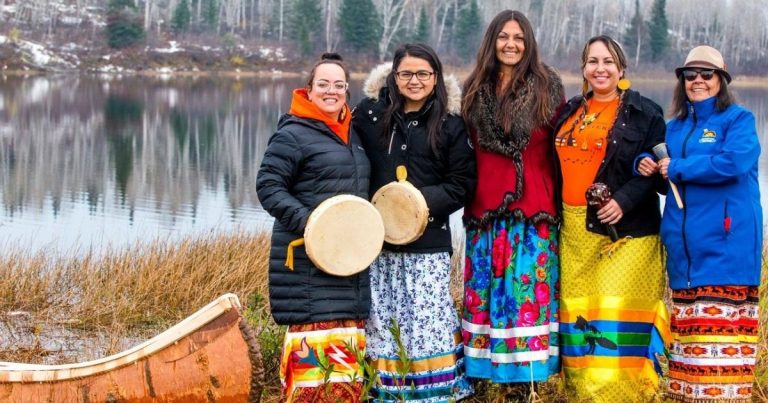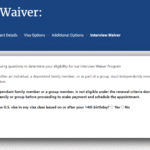Spousal Work Permit Eligibility for Canada has undergone major changes as of January 2025. Recent Immigration, Refugees and Citizenship Canada (IRCC) reforms narrow who can apply for an open work permit (OWP) as a spouse or common-law partner of international students or foreign workers. Under the new rules, spouses of Master’s students are eligible only if their programs last at least 16 months, and spouses of foreign workers must be in management or professional occupations (TEER 0/1) or in select TEER 2/3 roles in prioritized sectors. These policy shifts aim to better align with labour market needs while reducing over-extension of temporary immigration streams.
What Changed: Key Policy Updates
Effective Date and Scope
As of January 21, 2025, IRCC changed its eligibility criteria for family open work permits. These changes apply to new applications filed on or after that date. Permits previously approved under older rules remain valid until expiry.
For Spouses of International Students
Under the new regime, spouses or common-law partners are eligible for an open work permit only if the student is enrolled in one of the following:
-
A Master’s degree program of at least 16 months
-
A doctoral (PhD) program
-
A select professional degree program, such as Medicine, Law, Nursing, or Engineering
The requirement of “16 months or longer” for Master’s programs is new; shorter Master’s programs will not satisfy eligibility.
For Spouses of Foreign Workers
For spouses of foreign workers (principal permit holders), eligibility is now more restrictive. Key conditions include:
-
Occupation requirement: The foreign worker must be employed in TEER 0 or TEER 1 (management, professional) occupations.
-
Selective TEER 2/3 eligibility: Some TEER 2 or 3 occupations in sectors with labour shortages or government priority—such as health care, construction, education, and natural resources—may qualify.
-
Duration of principal’s permit: The foreign worker must have at least 16 months of validity remaining on their work permit when their spouse applies.
Additionally, dependent children of foreign workers are no longer eligible for open work permits under this policy.
Exceptions & Continuity
-
Free-trade agreements (FTAs): Spouses of workers covered under certain free-trade agreements (e.g., CUSMA) are exempt from the stricter rules.
-
Permanent residence applicants: Spouses who are already in or applying for permanent residence under eligible programs may still qualify as before.
-
Renewals under old rules: For holders whose permits were issued under former rules, renewal may be possible if they adhere to the same eligibility criteria and match the duration of the principal’s permit.
Implications & Impact
Narrowed Eligibility, Reduced Access
The new rules significantly narrow spousal work permit eligibility. Many couples who would previously qualify, such as spouses of students in shorter graduate programs or foreign workers in non-professional roles are now excluded. Estimates suggest Canada may issue tens of thousands fewer OWPs as a result.
Changing Choices for Students & Workers
-
Study program decisions: Prospective international students may prioritize longer Master’s programs or professional degrees to preserve spousal work rights.
-
Occupational mobility: Foreign workers in lower-skilled or non-priority roles may find it harder to have their spouse qualify, which may influence job choices or relocation decisions.
Family & Financial Considerations
The ability for a spouse to legally work in Canada can be a major support factor for household income and stability. The changes may place heavier financial burdens on families without spousal work permission.
Policy Alignment with Labour Market Goals
From the government’s perspective, the stricter rules help align migration with Canada’s labour needs and reduce misuse of temporary immigration streams.

What Applicants and Couples Should Do
Early Planning
To preserve eligibility, couples should plan ahead:
-
Choose academic programs that meet the 16-month minimum (for Master’s) or are recognized professional degrees.
-
Consider occupations for foreign workers that fall under TEER 0/1 or prioritized TEER 2/3 roles.
-
Ensure the principal’s work permit has at least 16 months remaining when applying for the spouse’s permit.
Know the Rules & Timing
-
Be certain applications are filed after January 21, 2025—new criteria apply to new applications filed on or after that date.
-
Applications filed earlier remain subject to old rules.
-
Spousal applications can be done from inside Canada or abroad, depending on status.
Consider Alternative Pathways
For those who no longer qualify under the open permit stream:
-
Seek employer-specific work permits if a job offer is available.
-
Explore permanent residence programs with spouse-included categories.
-
Investigate provincial or pilot programs that may provide specific exceptions or flexibility.
Maintain Valid Status & Records
-
Ensure documents remain valid and up to date (study permit, work permit, passports, proof of relationship).
-
For existing permit holders, monitor renewal timelines carefully under the same criteria provisions.
The 2025 reforms to Spousal Work Permit Eligibility for Canada represent a significant policy shift. By restricting eligibility to spouses of Master’s students in longer programs and to foreign workers in high-skilled or prioritized roles, Canada is tightening access to open work permits for families. While the changes may better align immigration flows with job market needs, they also place new pressures on couples intending to migrate together.
Successful navigation of the new system requires proactive planning, informed program or job selection, and careful timing. For many, adjusting strategy, whether through alternative permit routes or targeted program choices will be key to keeping family unity and work flexibility within reach.







